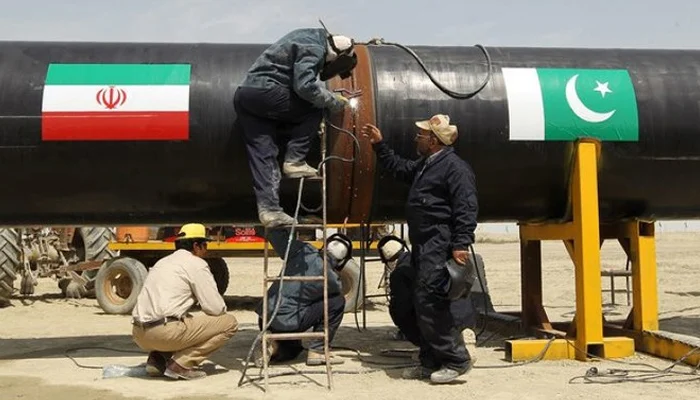In a recent development, the U.S. State Department has strongly opposed Pakistan’s plan to construct a pipeline for importing gas from Iran, citing potential sanctions.
In a recent development, the U.S. State Department has strongly opposed Pakistan’s plan to construct a pipeline for importing gas from Iran, citing potential sanctions. This announcement has sparked concerns over the future of energy trade between the two nations.
According to State Department spokesperson Mathew Miller, the United States does not endorse Pakistan’s initiative to establish the gas pipeline with Iran. Miller refrained from specifying the exact repercussions Pakistan might face for proceeding with the project but cautioned Islamabad about the risks involved in engaging with Iran amid U.S. sanctions.
Assistant Secretary of State for South and Central Asia, Donald Lu, reiterated this stance during a hearing with the House Foreign Affairs Committee, emphasizing that importing gas from Iran would expose Pakistan to severe U.S. sanctions.
The backdrop of this opposition stems from Pakistan’s decision to approve the construction of an 80-kilometer section of the pipeline in February. This move was primarily aimed at circumventing hefty penalties amounting to $18 billion owed to Iran due to prolonged delays in the project.
In response to speculation about seeking a waiver from U.S. sanctions, Pakistani Minister for Petroleum, Musadik Malik, expressed the country’s intention to pursue exemptions, highlighting the economic imperative of avoiding sanctions in the gas pipeline endeavor.
However, Assistant Secretary Lu stated that Washington had not received any formal request from the Pakistani government regarding waivers for American sanctions arising from the pipeline project.
In a conflicting stance, Pakistan’s Ministry of Foreign Affairs asserted that no waiver was necessary for the pipeline’s construction within Pakistani territory. The ministry’s spokesperson emphasized that the segment being built falls within Pakistan’s jurisdiction, precluding the need for third-party intervention.
The gas pipeline project between Pakistan and Iran traces back to a bilateral agreement signed in June 2009, aiming to supply significant volumes of Iranian natural gas to Pakistan. Despite the completion of a substantial portion of the pipeline on Iran’s side in 2011, Pakistan hesitated to proceed due to concerns over potential repercussions from U.S. sanctions against Iran, primarily related to its nuclear program.
With tensions escalating, the future of energy cooperation between Pakistan and Iran hangs in the balance, as both nations navigate geopolitical challenges and economic imperatives in pursuit of their energy security goals.
